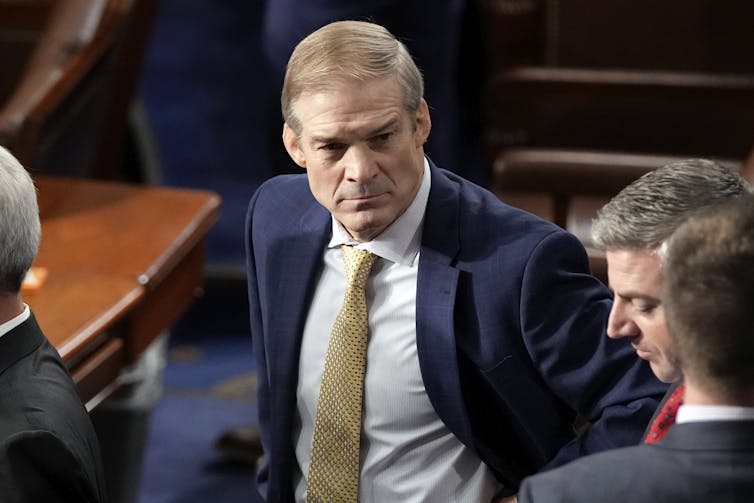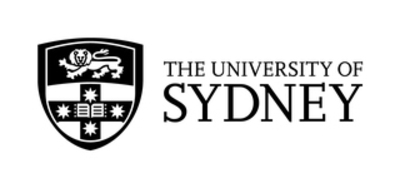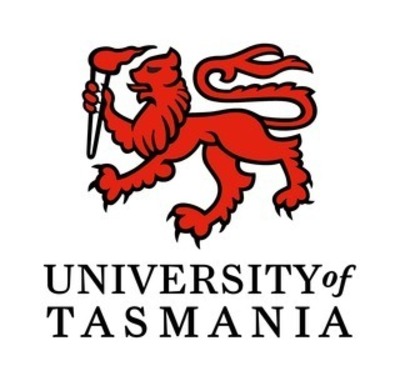- Home
Edition
Africa Australia Brasil Canada Canada (français) España Europe France Global Indonesia New Zealand United Kingdom United States Edition:
Global
Edition:
Global
- Africa
- Australia
- Brasil
- Canada
- Canada (français)
- España
- Europe
- France
- Indonesia
- New Zealand
- United Kingdom
- United States
 Academic rigour, journalistic flair
Academic rigour, journalistic flair
 Lukas Coch/AAP
What does the US Congress want with Australia’s eSafety commissioner?
Published: November 22, 2025 6.22am GMT
Lester Munson, University of Sydney
Lukas Coch/AAP
What does the US Congress want with Australia’s eSafety commissioner?
Published: November 22, 2025 6.22am GMT
Lester Munson, University of Sydney
Author
-
 Lester Munson
Lester Munson
Non-Resident Fellow, United States Studies Centre, University of Sydney
Disclosure statement
Lester Munson receives funding from the U.S. Studies Centre at the University of Sydney. He is affiliated with the Republican Party in the United States and worked in Congress for over 20 years.
Partners
University of Sydney provides funding as a member of The Conversation AU.
View all partners
DOI
https://doi.org/10.64628/AA.msmnkv5y9
https://theconversation.com/what-does-the-us-congress-want-with-australias-esafety-commissioner-270273 https://theconversation.com/what-does-the-us-congress-want-with-australias-esafety-commissioner-270273 Link copied Share articleShare article
Copy link Email Bluesky Facebook WhatsApp Messenger LinkedIn X (Twitter)Print article
In the lead-up to the much-discussed social media ban taking effect, Australian eSafety Commissioner Julie Inman Grant is often in the headlines.
For all the attention she’s been getting, Inman Grant probably didn’t expect any of it to come from a foreign government committee, calling her to answer for a so-called “censorship regime”.
But the US House Committee on the Judiciary has asked her to appear before it to testify about laws governing the internet.
Chair of the committee, Republican Jim Jordan, was blunt in his request. In a letter to the commissioner, he wrote:
as a primary enforcer of Australia’s OSA [Online Safety Act] and noted zealot for global take-downs, you are uniquely positioned to provide information about the law’s free speech implications […]
While it seems an unusual move, censorship has grown into a hot-button issue in the United States. Inman Grant finds herself at the centre of a perfect storm of rhetoric, politicking and fierce American individualism.
Does she have to testify?
The committee has no jurisdiction over the activities of the Australian government. Indeed, it does not even have jurisdiction over US-Australian diplomatic relations, which are the provenance of the House Foreign Affairs Committee.
The Judiciary Committee can call anyone it wants to come and testify at a hearing, but potential witnesses outside the US cannot be compelled to do so. This means Inman Grant can decide whether she wants to appear.
Jordan, the committee’s chair, is a member of the House Freedom Caucus: a formal group of around 45 mostly libertarian conservatives in the Republican Party in the House.
The caucus does not necessarily represent the views of most Republicans. It has often been in conflict with House Republican leadership.
Mounting cynicism
The issue of internet censorship is fraught in US politics. At the height of the COVID pandemic, this issue became even more heated and controversial.
Many Americans were very upset to learn the Biden administration worked with Facebook to censor posts about the pandemic. Facebook Chief Executive Mark Zuckerberg, who testified before the Judiciary Committee about this issue last year, has vowed his company would never do so again.
On his first full day in office this year, President Donald Trump signed an executive order banning government from censoring social media.
The backlash from Americans against any kind of censorship has at least two sources. The first the generalised resistance to taking any kind of direction from the government.
Americans don’t want to be told “no” by their government. Whether it’s guns, drugs, gambling, abortion, gay marriage or even seatbelts, Americans don’t want to be told what to do (although after a few years of clever advocacy, Americans accepted the need to wear seatbelts).
The idea that their own government would censor their social media posts – no matter how wrong that post might be on the facts or how counterproductive to the public interest – is anathema to many Americans.
Second, the backlash against the US government, specifically for actions taken during the COVID pandemic, has been fairly broad. Americans have criticised mask mandates, social distancing, working from home, and other measures taken to reduce exposure to the coronavirus.
 Republican Congressman Jim Jordan chairs the House Judiciary Committee.
Alex Brandon/AP
Republican Congressman Jim Jordan chairs the House Judiciary Committee.
Alex Brandon/AP
While there certainly has been a lot of disinformation regarding COVID, the policies of and information from the US government itself during the pandemic have been widely criticised as ineffective or wrong-headed.
The confusing politics and fraught policies from the pandemic era have made many Americans – particularly represented by the Freedom Caucus – much more sceptical of government actions generally.
It’s against this backdrop that politicians like Jordan cast a wide net in the quest against censorship, real and imagined.
Ghosts of disputes past
Of course, many of the large social media platforms and internet technology companies are American (X, Meta, Google and Amazon, among others).
The people who run these companies have generally made a point of getting along with Trump and his administration. They are often seen funding his initiatives and supporting his policies.
No doubt they also would have done this if Kamala Harris had won the presidency.
Because VPN (virtual private network) technology can allow individual users to escape national restrictions, some foreign governments have asked American companies to take down all posts globally on a certain topic.
This is what Inman Grant did in the commission’s case against X, owned by former Trump administration figurehead Elon Musk. The commission wanted video of Wakeley church stabbing in Sydney removed everywhere, not just in Australia. eSafety ultimately dropped the case in 2024.
Read more: Elon Musk vs Australia: global content take-down orders can harm the internet if adopted widely
Jordan cites this case in his letter to the commissioner. It clearly struck a sour note.
These sorts of requests, if granted, affect Americans because they wouldn’t have access to those posts. Libertarians in particular do not react well to this possibility, and that means it won’t land well with Congress.
The position of the House Judiciary Committee does not represent American foreign policy. Jordan, however, is an influential member of Congress and generally friendly with Trump. Jordan’s advocacy may come to impact Trump’s foreign policy, but for the time being, Inman Grant doesn’t have too much to worry about.
- Censorship
- US politics
- Freedom of speech
- Donald Trump
- Elon Musk
- eSafety Commissioner
- X (formerly Twitter)
- Social media ban
Events
Jobs
-
 Senior Manager, Student Information and Regulatory Reporting
Senior Manager, Student Information and Regulatory Reporting
-
 Lecturer in Paramedicine
Lecturer in Paramedicine
-
 Associate Lecturer, Social Work
Associate Lecturer, Social Work
-
 Lecturer, Communication Design
Lecturer, Communication Design
-
 Leading Research Centre Coordinator
Leading Research Centre Coordinator
- Editorial Policies
- Community standards
- Republishing guidelines
- Analytics
- Our feeds
- Get newsletter
- Who we are
- Our charter
- Our team
- Partners and funders
- Resource for media
- Contact us
-
-
-
-
Copyright © 2010–2025, The Conversation

 Senior Manager, Student Information and Regulatory Reporting
Senior Manager, Student Information and Regulatory Reporting
 Lecturer in Paramedicine
Lecturer in Paramedicine
 Associate Lecturer, Social Work
Associate Lecturer, Social Work
 Lecturer, Communication Design
Lecturer, Communication Design
 Leading Research Centre Coordinator
Leading Research Centre Coordinator



.png?width=1200&auto=webp&trim=0%2C115%2C0%2C85)